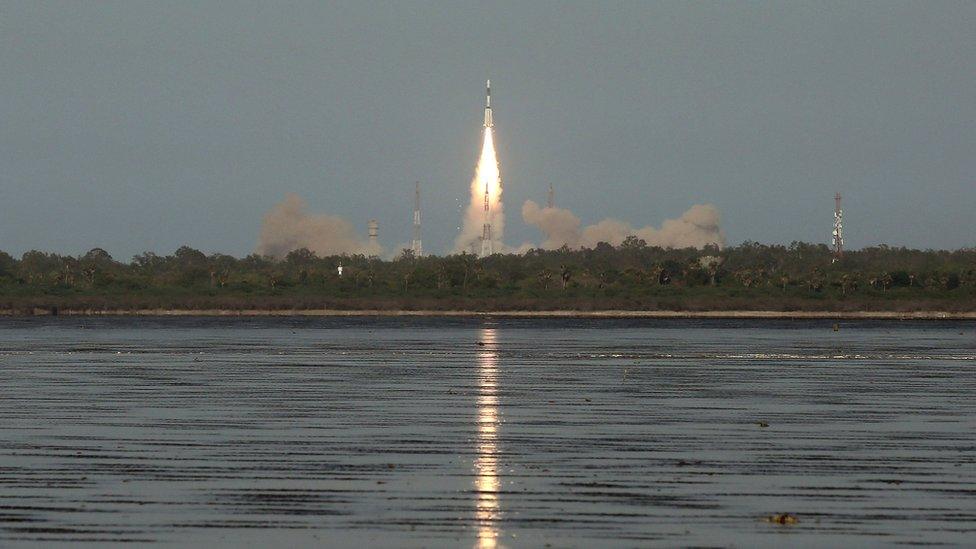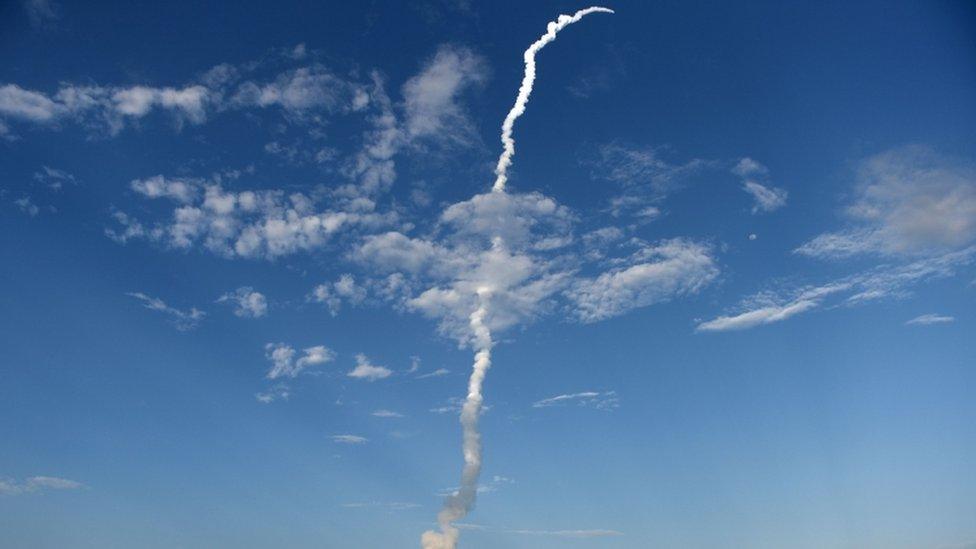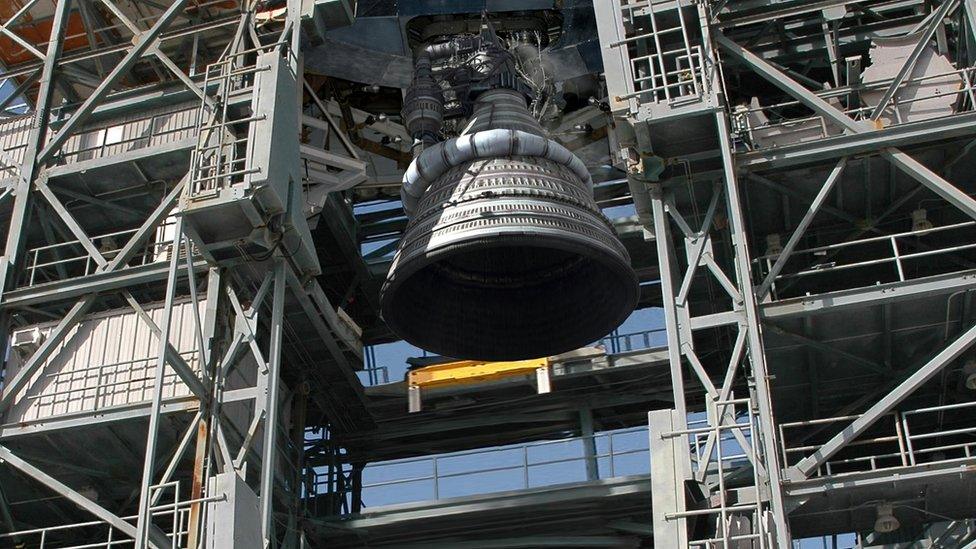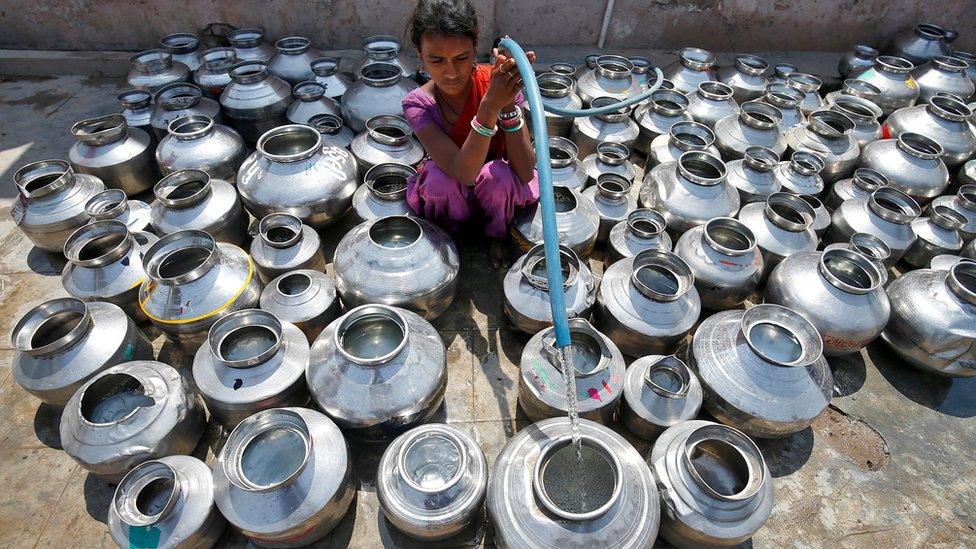Four reasons India is going big on space
- Published

India's "monster rocket" carried a huge satellite into space
The Indian Space Research Organisation (Isro) dubbed the launch of their heaviest rocket yet - weighing 640 tonnes and carrying a 3,000kg satellite - a "historic day".
The rocket - equivalent in weight to five fully laden jumbo jets, or 200 fully grown elephants - was put into space using locally-developed technology; the launch had been planned for a decade.
India is often criticised for spending money on space projects when nearly a quarter of its population live below its official poverty limit.
So why is India so keen on space? BBC Tamil's Sivaramakrishnan Parameswaran investigates.
It's cheap
India argues that the cost of the latest launch was not huge by international standards. It cost about $5m (£3.87m).

Isro called the launch a "historic day"
With an expected life span of 10 years, the operating cost per year is narrowed down further - to a level that India's space industry claims is "very cheap".
India has been constantly upping its budget allocation for scientific research, and in particular space research. In fact, this has partly been in response to criticism that it does not spend anything like as much on science funding as it should.
Booming industry
The United States, France and Russia hold nearly 75% of the nearly $6bn (£4.6bn) satellite launch industry - one that is increasingly lucrative.
India now hopes to tap "hugely" into this.

Only a few countries have the potential to launch huge satellites
The "space economics" include launching satellites ranging from a few kilos to ones weighing hundreds of kilos.
In a multibillion dollar industry, India has just a share of just above 0.5% - while China has 3% of the market, according to the Satellite Industry Association.
In the past India was unable to lure customers for their satellite launches due to its launch vehicle constraints, making the nation heavily dependent on France for its launches.
That is now a thing of the past.
Changing the market
Most meteorological and communication satellites weigh nearly four tonnes and that needs a massive rocket to launch them.
With the latest launch, India has sent a strong message to the international community that a low-cost alternative is available.


The rocket launched by India is said to be the weight of 200 fully grown elephants

It recently successfully launched 104 satellites of varying sizes in one go, enhancing its credibility.
The global satellite market - which includes building, launching and sustaining communications between them - is worth $120bn (£92.7bn), and has mushroomed in recent years, driven by the increased demand for connectivity.
Analysts say with its lower costs, India could become a hub for the growing satellite launch industry.
Encouraging others
Critics question the rationale of India investing hugely in scientific development when comprehensive social development is still lacking.

Millions of people struggle for clean drinking water in India
Millions in India still don't have access to clean drinking water, uninterrupted power supply, toilet facilities, road and rail connectivity among others.
But successive governments have argued that spending on science and technology leads to all-round social development.
The latest rocket launch is a case in point. India hopes it will encourage developing nations to use them for their launches rather than the Western nations.
And regardless of criticism, India is putting up the money - the budget has been increased and there are now plans to launch a mission to Venus.